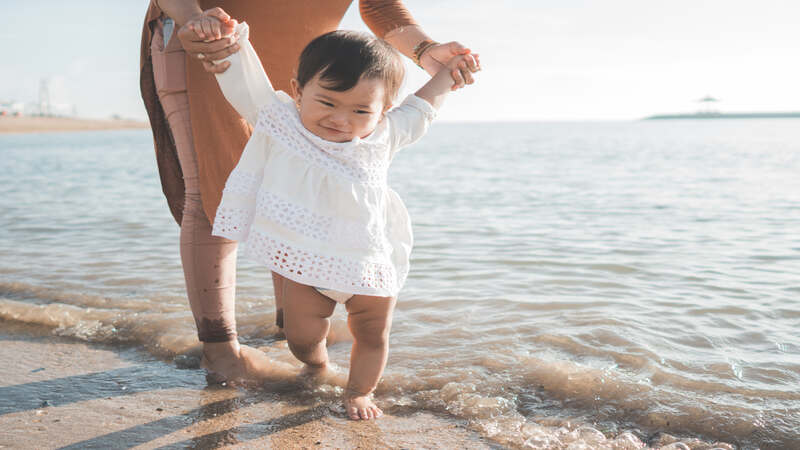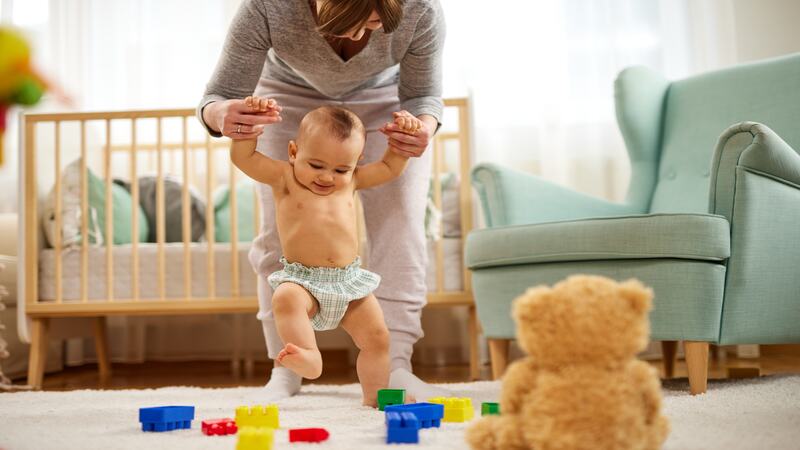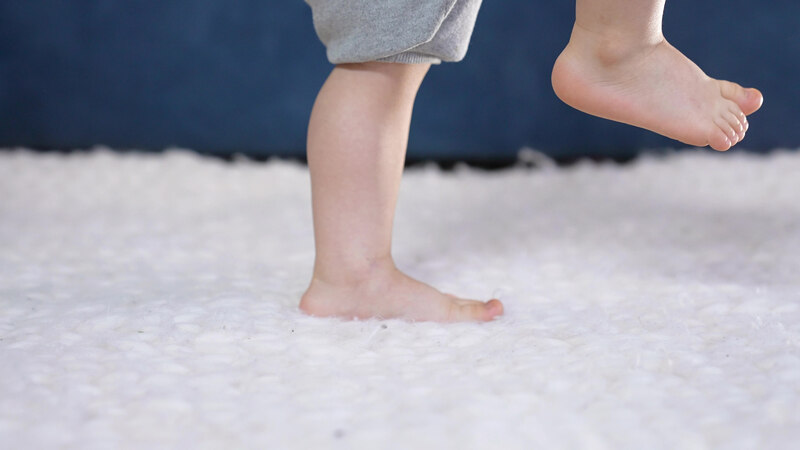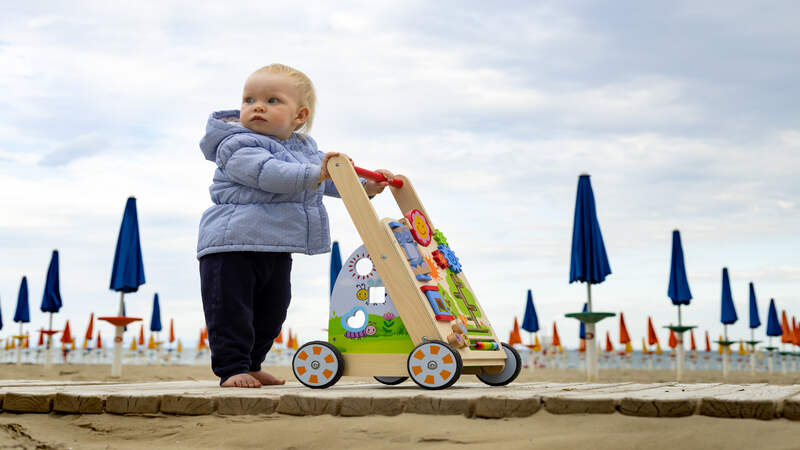
From rolling over on their crib to sitting for the first time, your mischievous little one is yet again going to move your heart with one more milestone. While parents look forward to every milestone, they can also get worried if their baby will reach the milestones on time, which is completely normal. Walking is one of the milestones which requires a lot of practice and encouragement. In this article, we give you the top 5 tips to encourage babies to walk.
Walking doesn’t come easily to babies. It is a combination of strength and coordination. Different babies achieve these milestones differently. Don’t get disheartened if your baby gets delayed with their first step. All toddlers will get there eventually.
At What Age Should Babies be Able to Walk?

Babies walk their earliest steps near the months of 10 to 12. Some might learn to walk at around 12 months while others may get this skill at their 16th or 17th months. Count 14 months of age in the normal range for your baby to take the first steps.
Here is an age wise breakup of how your baby will be able to reach the walking milestone.
Birth to 2 Months
A newborn baby doesn’t have strength or coordination to do any task. Their day just revolves around eating and sleeping. However, babies do exhibit certain reflex actions, behaviors they are born with. These reflex actions disappear later giving way to different milestones. Stepping reflex in babies is the very first sign you will see of babies trying to move their legs.
3 Months to 6 Months
During this period, your baby gets stronger and develops many skills. They are able to lift and hold their head, reach out for objects, and grab them too. Most babies roll over in one direction and a few are able to sit up with support too. All these skills help babies develop the necessary strength and coordination to be able to walk later.
7 Months to 9 Months
Some babies are able to crawl albeit very unevenly. Other babies may have to reach their 10th month too to be able to crawl. Some babies may even be able to pull themselves up into a sitting position.
9 Months to 12 Months
By this time babies will master sitting with support and crawl effortlessly. Some babies may even learn to stand on their own and start cruising by taking help of anything they find- pieces of furniture, or even their caregivers. Their knee muscles are stronger at this stage.
12th Month to 18th Month
This is the period when your munchkin’s walking abilities truly evolve. Most babies take their first steps during this period. Don’t be surprised if your baby has taken their first steps before this time. All babies are different. This is also the period when babies will master other milestones such as standing without support, cruising confidently, and squatting.
How do You Help Babies to Learn Walking?

Make use of these highly effective methods to boost your baby’s self-confidence for walking.
1. Encourage Your Baby
Cheer them up every time you see them trying and their eyes sparkling with determination.
2. Provide Support
Allow them to hold your hand and walk when you see that are trying to walk and looking out for help.
3. Babyproof The Surroundings
Babyproofing for walking is essential to ensure that your baby doesn’t unnecessarily get hurt when attempting to wal
Top 5 Tips to Encourage Babies to Walk

These tips are to ensure that your baby’s little journey of learning to walk has an aura of safety and the best ways.
1. Buy a Push Toy
Add push toys into their playtime which don’t tip over, thanks to their huge wheels. A pint-sized lawn mower, a small shopping cart, etc. can be gripped and pushed easily. Such activity will be both fun and worthwhile for giving their leg muscles a good workout. It will also sharpen their skill to balance themselves.
2 Applaud Them
Babies need a lot of encouragement. Every time you clap and feel happy, every time the baby sees joy in your eyes, they will put in more effort to do better.
3. Tempt Them
Tempt them with toys in a line as they grab any furniture and stand out of curiosity. They will walk some steps to collect all their buddies. Remember, all these are to be used if your infant can already stand with some support.
4. Get Involved
Become a baby and get involved in the play with them. And let them walk barefoot inside, that means no socks also. Let their feet feel varied ground surfaces; soft, hard, etc. to adjust their muscle movement and balance accordingly.
5. Provide Support
Support their trunk and help them balance themselves while you walk with them. Encourage them to do activities like following you to the other room and so on.
Talk to your pediatrician if you plan to buy a baby walker for your baby. Baby walkers as they’re responsible for lots of baby injuries each year. This advice is given by the American Academy of Pediatrics (AAP), as it delays infant development and may affect the baby’s coordination skills.
When Should I Worry if My Baby Doesn’t Walk?

Every baby learns at different paces, and the same is true with walking. Be relaxed and keep trying even if they aren’t taking their first steps on their first birthday. But rush to your pediatrician if you see their legs unduly stiff or if they fall too much or stumble to one side in their attempts at walking. Some babies may take their first steps any time before their 18th month and need to reach at least 2 years to be able to walk confidently. You must see the doctor if your baby is not able to sit with support even after celebrating their first birthday.
Your baby walking may be a big achievement for you, but if you ask your baby’s big thoughts, it’s nothing short of a world record. So, you as a coach on every little fall and every successful step will be a wonderful gift for them.
FAQ’s
1. Is it Normal For a 2 Year Old Not to Walk?
If a baby doesn’t walk steadily by 2 years of age, it should ring an alarm bell, and an intervention of a doctor is a must.
2. What Causes Delay in Child Walking?
In cases of dysplasia, rickets, cerebral palsy, and so on, walking can be highly delayed.
3. Do Smarter Babies Walk Sooner?
Be it an early walker or a late walker, intelligence is not related to how sooner one walks.

